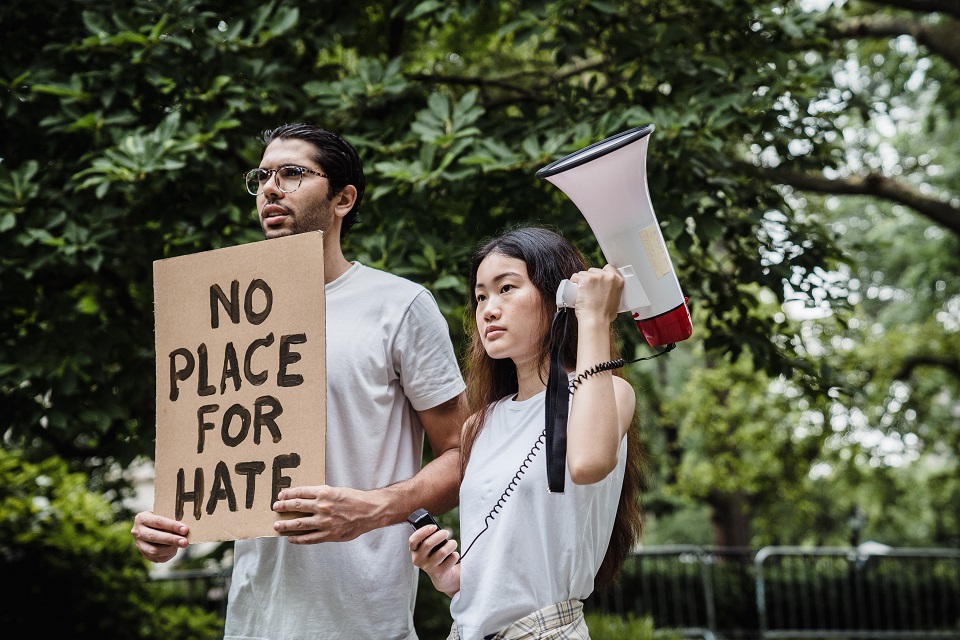An equal and just society must be built on human rights principles. They are the guiding principles that safeguard each person’s intrinsic value and dignity, regardless of their upbringing, ethnicity, or religious views. Understanding human rights is essential for preserving individual liberties and advancing justice, peace, and society. This post will examine five strong arguments for why it is crucial to understand human rights.
Table of Contents
1. Protection Of Basic Freedoms
Understanding human rights is crucial because it guarantees the protection of basic liberties, which form the cornerstone of a just and free nation. These liberties cover a wide variety of rights, including the freedom of opinion, speech, religion, and assembly, as well as the rights to life, liberty, and personal security. When people are aware of their rights, they may confidently exercise them, which promotes a culture of responsibility among the organizations and agencies in charge of protecting these freedoms.
Individuals can more successfully fend against arbitrary detentions, censorship, prejudice, and other constitutional breaches if they know their rights. Furthermore, a society that respects human rights is more likely to call for legal systems that actively uphold these rights by recognizing them and enforcing them. A more equitable and just legal system is established because of this collective understanding, guaranteeing that each person may live with dignity and in line with their convictions.
2. Promotion Of Equality & Non-Discrimination
Understanding human rights catalyzes advancing equality and tearing down firmly ingrained discriminatory systems. No matter their color, gender, sexual orientation, faith, or socioeconomic background, every individual has a right to receive equal protection and treatment under the law, according to human rights principles. People and communities can better fight against prejudice and promote equitable opportunity when they understand these ideas.
People who are aware of human rights can promote inclusion and diversity. They can actively seek to eliminate structural injustices, including racial prejudice, Christian Persecution, gender discrimination, and income inequality. This dedication to equality manifests in group efforts to build an equitable and just community where everyone has equal access to opportunities and rights, regardless of background.
3. Prevention Of Human Rights Abuses
A thorough knowledge of human rights is a potent deterrent to violations of such rights. People can take proactive steps to safeguard themselves and others when they know the indicators of probable abuse. This involves recognizing and disclosing warning indicators of domestic abuse, human trafficking, exploitation of children, and other types of abuse to help with the early identification and prevention of such horrible crimes.
Furthermore, a knowledgeable population is more likely to spot and report human rights infractions to the relevant authorities or human rights groups. This widespread watchfulness is essential for bringing criminals to justice and protecting victims. A watchful and knowledgeable society is better prepared to stop and address human rights violations, fostering an environment where infractions are less likely.
4. Advocacy & Social Change
Education and understanding of human rights are effective motivators for advocacy and social change. People aware of the fundamentals of human rights are more inclined to become fervent supporters of people whose rights are being infringed. They can participate in nonviolent protests, support grassroots movements, and launch initiatives to advance social justice and human rights.
Understanding human rights enables people to interact with decision-makers and press them to reform laws and policies that violate those rights. It empowers people to influence change through their voices and group efforts, resulting in a society with greater equity and justice. Knowledgeable advocates can make a difference by challenging repressive regimes, promoting legislative changes, and drawing attention to human rights situations that may otherwise go unreported.
5. Global Peace & Cooperation
Lastly, advancing world peace and cooperation requires a thorough grasp of human rights. Human rights are global ideals that cut across all boundaries, philosophies, and civilizations. Human rights are respected and upheld when people and countries do so, promoting trust and collaboration worldwide.
The chance of international conflicts and wars is lower in nations that uphold human rights because they are more likely to participate in diplomatic negotiation and peaceful conflict settlement. On the other hand, countries that violate human rights frequently experience international censure and penalties, which act as a deterrent to additional violations. The belief that the defense of human dignity is a shared worldwide obligation is reinforced by a worldwide dedication to human rights. This commitment is essential for fostering peace, stability, and international cooperation.
Conclusion
In conclusion, comprehending human rights is more than a theoretical exercise; it is a necessary condition for creating a just, equal, and peaceful society. A thorough understanding of human rights enables people and communities to improve the world by safeguarding fundamental freedoms, advancing equality, preventing human rights violations, fighting for social change, and fostering international cooperation. Human rights and dignity are upheld for all people in such a world.



